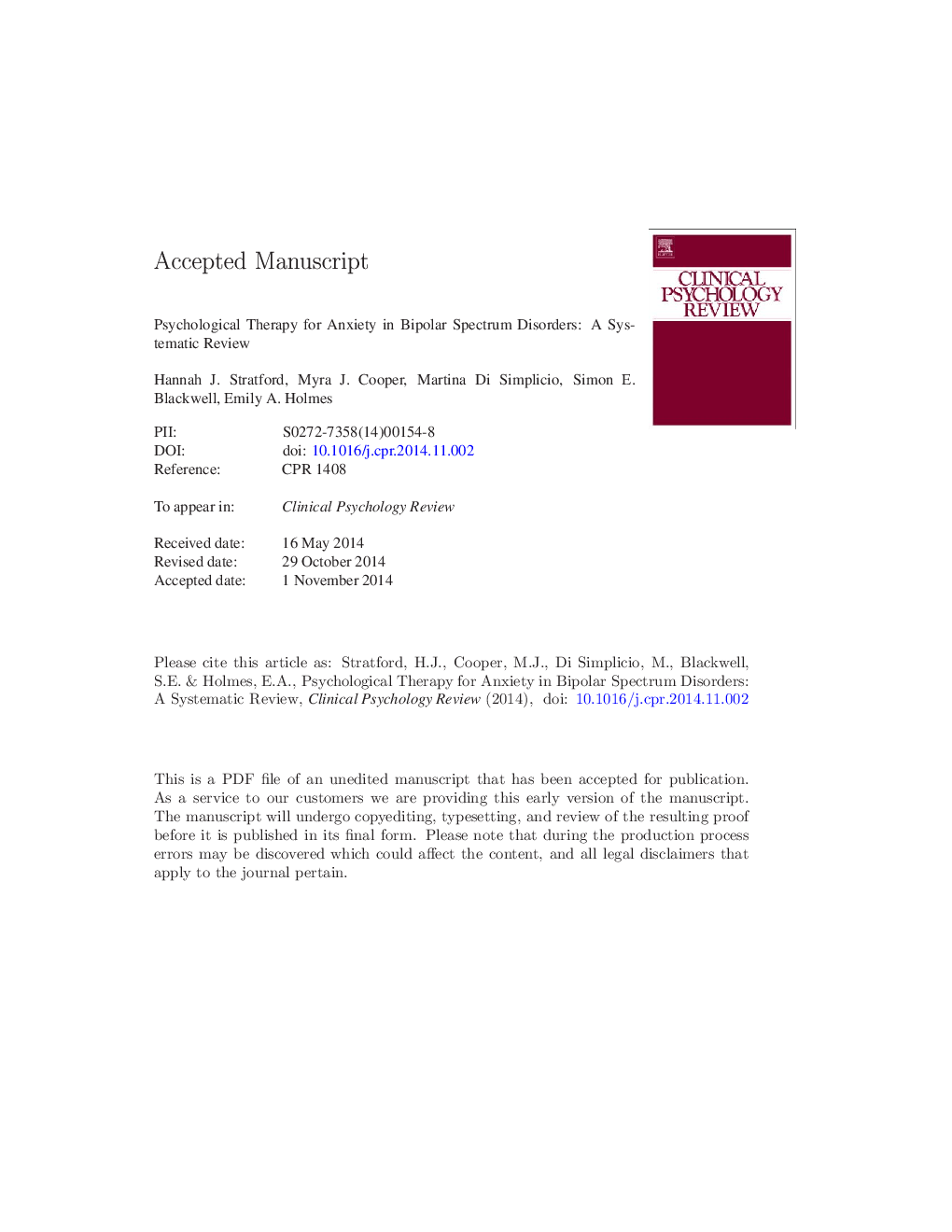| Article ID | Journal | Published Year | Pages | File Type |
|---|---|---|---|---|
| 7264165 | Clinical Psychology Review | 2015 | 69 Pages |
Abstract
Comorbid anxiety is common in bipolar spectrum disorders [BPSD], and is associated with poor outcomes. Its clinical relevance is highlighted by the “anxious distress specifier” in the revised criteria for Bipolar Disorders in the Diagnostic and Statistical Manual 5th Edition [DSM-5]. This article reviews evidence for the effectiveness of psychological therapy for anxiety in adults with BPSD (bipolar I, II, not otherwise specified, cyclothymia, and rapid cycling disorders). A systematic search yielded 22 treatment studies that included an anxiety-related outcome measure. Cognitive behavioural therapy [CBT] for BPSD incorporating an anxiety component reduces anxiety symptoms in cyclothymia, “refractory” and rapid cycling BPSD, whereas standard bipolar treatments have only a modest effect on anxiety. Preliminary evidence is promising for CBT for post-traumatic stress disorder and generalised anxiety disorder in BPSD. Psychoeducation alone does not appear to reduce anxiety, and data for mindfulness-based cognitive therapy [MBCT] appear equivocal. CBT during euthymic phases has the greatest weight of evidence. Where reported, psychological therapy appears acceptable and safe, but more systematic collection and reporting of safety and acceptability information is needed. Development of psychological models and treatment protocols for anxiety in BPSD may help improve outcomes.
Keywords
Related Topics
Health Sciences
Medicine and Dentistry
Psychiatry and Mental Health
Authors
Hannah J. Stratford, Myra J. Cooper, Martina Di Simplicio, Simon E. Blackwell, Emily A. Holmes,
